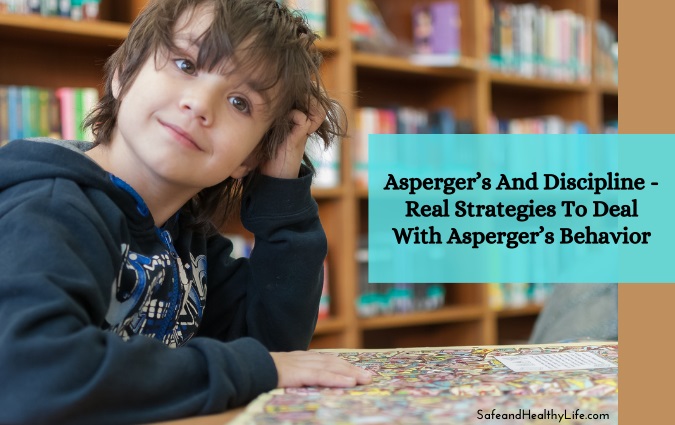[ad_1]

People with Asperger’s disorder find it difficult to socialize and communicate with a bunch of people around them. They show inappropriate responses in social gatherings.
It’s a Sunday and your children are at a kids’ party with other parents and children. One of your children is suffering from ASP.
Everyone is chatting and eating but suddenly a noise and scream you heard just behind you.
It’s your child with ASP syndrome throwing toy animals and plastic balls on the other children.
Now, what to do?
How you are going to handle the situation?
Will you scold your child?
What other parents will behave?
In this article, I will guide you about what could be the real strategies to deal with Asperger’s behavior.
- Try to socialize your child at an early age or in the early stage of Asperger’s syndrome. This will give you and your child enough time to teach and behave ethically in social gatherings. It is important to expose the ASP child to a social gathering. See what triggers your child the most in the gathering. And then prepare yourself to diffuse the behavior of the child accordingly.
- Try to be clear in your words. Your words and explanation should have the power that strikes the child’s mind softly. He will understand your words. The way you speak with the child will impact his mind. You don’t have to be so soft with your words but not so harsh as well.
- If your child has some creative mind like if he is creative in drawing, creative in making some art, creative in some engineering and etc. Then embrace the child. If he is enjoying the social gathering embrace as well. If the child sees that he is happy but you are throwing negative words or tantrums on them, he will not behave better in gathering. Try to be positive in front of the child and give him positive surroundings.
- Do not yell at your child if he is showing negative behavior. For example, you are serving dinner and your child didn’t like the food you cooked or he wants his favorite meal right now. He has started screaming and crying in front of everyone. Don’t scold the child. Don’t force him to eat or to keep quiet. Ask him to come with you or gently hold his hand and go outside. Take a walk. Ask him to take deep breaths. You can tell him any good moral story. Then come inside and say to him that you will get your favorite meal tomorrow. He will surely eat the food with calmness.
- You will surely be not with your child every time. But you can still communicate with him/her by leaving notes behind. For example, when he goes to school then leave a note in his lunch box that shares the meal with your friends or you can write that you are missing him/her. This will increase the positive attitude of your child.
- Use teachable moments as an opportunity. For example, if a child grabs a toy from another child, instead of reprimanding him for snatching the toy, teach him how to use his words to ask for the toy (if he has the language skills to do so).
- Use a schedule whenever feasible to let the child know how his day will go. A visual schedule would be best for youngsters who have difficulty reading or understanding English. After school, a routine might include having a snack, doing schoolwork, viewing TV, playing a family game, reading a book, having a bath, and going to bed. At school, a graphic timetable would include math, reading, gym, lunch, recess, art, science, packing up, and going on the bus.
- For certain children with language issues, showing the child the next activity or toy he will use might help him transition from one activity to the next. For example, if the child is on the Internet and you want him to come work on a puzzle, show him the puzzle so he knows what you want him to do.
- Try to give the child choice. All children, even those with autism, want to feel in charge of their surroundings. Many youngsters benefit from having their selections limited to two to four (depending on the child), as they become overwhelmed when faced with too many options and are unable to make a decision. “Do you want to play a board game or watch TV?” “Do you want butter or jelly on your bread? “Do you want to wear the red shirt or a green one? are some examples of options.
Always remember, the child doesn’t want to be like this. You can deal with calmness to teach discipline to your Asperger’s syndrome child.
About The Author:
Adam Hayat working as a Marketing Manager for A Boutique Medical Communications Agency Based in Zealand. We aim to be the communications agency of choice for the leaders in healthcare provision.
[ad_2]
Source link




